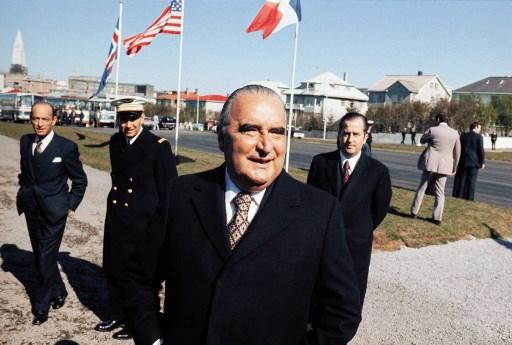François Durovray is president of Les Républicains of the department of Essonne.
To discover
PODCAST - Listen to the club Le Club Le Figaro Idées with Eugénie Bastié
After four years of suffering, Waldenström's disease took away Georges Pompidou on April 2, 1974. A rare illness, discovered during 1944, at the very moment when the young Pompidou entered the office of General de Gaulle. To die not to die: these words from Eluard will resonate until the last breath of the second president of the Fifth Republic.
Contrary to the concerns of General de Gaulle, who sensed, in 1959, that
"History will never know everything that Pompidou had done for the Republic"
, the politician that I am capable of today fully immensity of the heritage. The heritage but also all the strength in the national story and the history of the French right. The strength of a visionary statesman who firmly believed, like his mentor, that the destiny of the French was inseparable from the greatness of France.
Also read: “We, elected officials, have a duty to pay tribute to Raymond Aron, this tireless defender of freedom”
The president of the happy years, as many observers of political life call him, navigated masterfully between the spheres of intellectual and political power: first in aggregation, professor of Letters, unconditional of Racine, master of requests to the Council of State, bank director, author of an anthology of French poetry, heir apparent to de Gaulle, second president of the Fifth Republic... Pompidou first of all embodies a certain idea of France, where work and merit are high among essential values, in the tradition of the Third Republic. Pompidou is also the name for courage in politics. His commitment to the 141st Alpine Infantry Regiment marks the beginning of a political career which has always placed the national interest above all else. The interest and preservation of the beauty of France.
Heir to social Gaullism, his mandate marked an important stage in the history of the right in France, by re-enchanting a certain partition of capital and labor and by promoting intelligent interventionism backed by industrialization as a “politics of happiness”.
It is these higher principles that he had in mind when he wrote to J. Chaban-Delmas in 1970 that
“maintaining our roads planted with trees is essential for the beauty of France, for the protection of nature, for the preservation of a human environment. (…) Saving the French landscape must be one of our constant and primary concerns.
» The creation of the Ministry of the Environment in 1971 sealed Pompidou's commitment to ecological issues and the preservation of the environment.
His vision of economic development and regional planning also powerfully transformed France, propelling it towards an era of prosperity and innovation. The Department of Essonne that I chair solemnly bears the memory of this, right down to its architectural DNA: it has been 52 years since the Administrative City of Evry-Courcouronnes brought together the State services, the Judicial Court and the Departmental Assembly . A great witness to the golden age of brutalism, this page of Essonne's cultural history embodies the legacy of Pompidou. On April 2, in a nod to history we will lay the first building stone in Essonne at Massy which will house the reserves of the Pompidou center. I am proud to contribute to bringing his name to life and rooting it in our country that he cherished so much.
Also read: In Cantal, the still vivid memory of Georges Pompidou
Furthermore, as president of a community which is responsible for solidarity, it is natural for me to salute the social thought and action of Georges Pompidou. Heir to social Gaullism, his mandate marked an important stage in the history of the right in France, by re-enchanting a certain partition of capital and labor and by promoting intelligent interventionism backed by industrialization as a “politics of happiness”.
Today, as France faces major complex transitions, it is imperative to reconnect with the spirit of conquest embodied by Pompidou. By building on its heritage, we can mobilize the French around an ambitious and innovative project.
And it is this call that I wish to embody today, as president of the Departmental Council, and, as heir of this social right: it is time, with the approach of new political deadlines which are causing the threatens the extremes, to rebuild a modern, bold and open right, capable of meeting the expectations of the French and defending these values of work, merit and social justice already so dear to Georges Pompidou. By relying on the heritage of Gaullism, and even more so of “social pompidolism”, I believe in our capacity to breathe new life into a strong, resilient France, which regains its rank as a great universal power. This is the meaning of my commitment alongside Xavier Bertrand and the Nous France teams.

